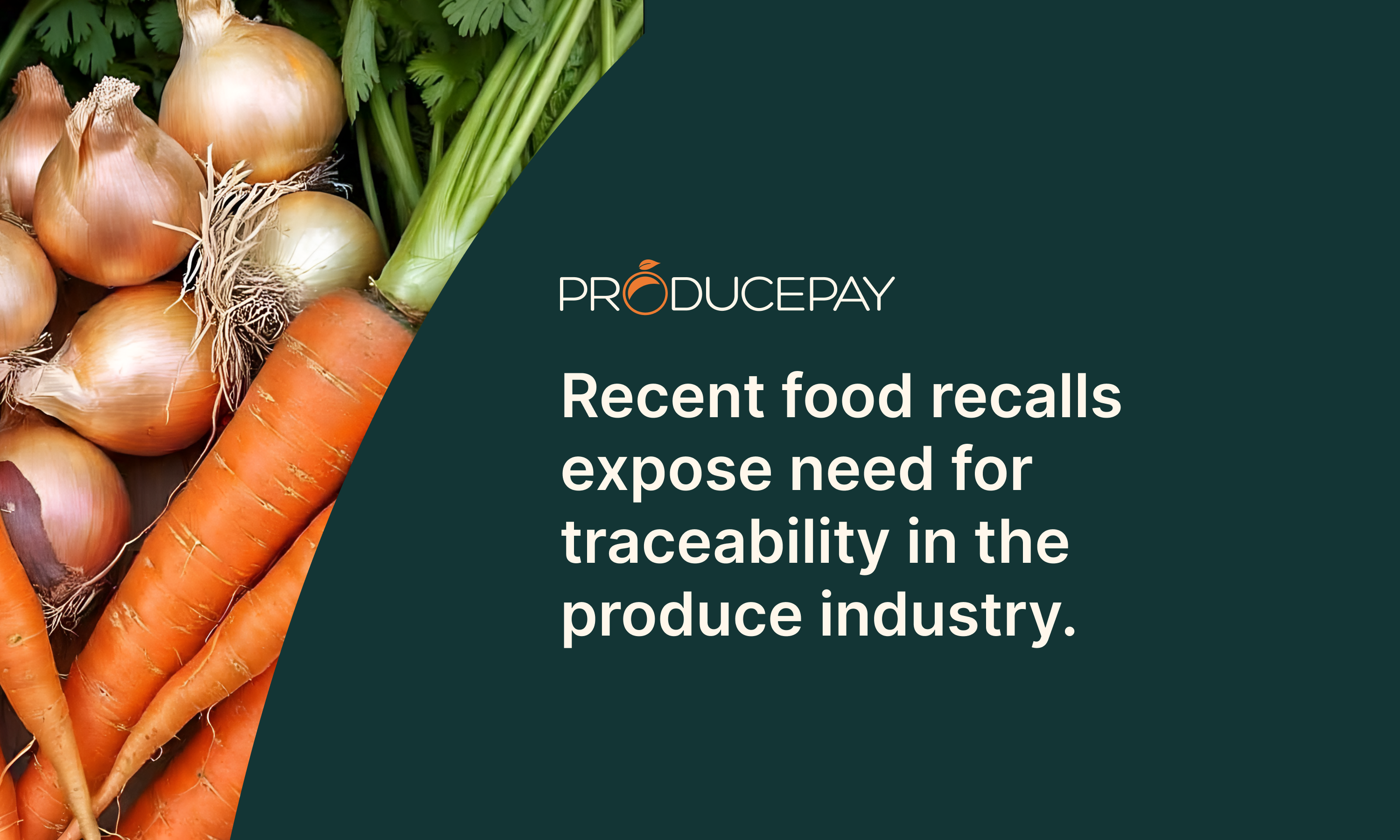
Recent food recalls expose need for traceability in the produce industry
The fresh produce industry is facing growing challenges from disease outbreaks and their effects on supply chains. Recent high-profile contamination incidents involving carrots, cantaloupes and onions have highlighted how pathogens like E. coli and Salmonella can disrupt operations, and expose the big volatility issue in the industry.
Recent recalls: A growing concern
In recent months, a series of contamination incidents have underscored the produce industry’s vulnerability to disease outbreaks. The most recent was the E. coli O121 outbreak linked to organic carrots, leading to a big recall, impacting supply in 18 states across the U.S., and resulting in 39 illnesses, 15 hospitalizations, and one death. While the contaminated carrots are no longer believed to be in stores, they may still be in consumers’ homes, creating an ongoing public health concern. The recall also extended internationally, with shipments reaching Canada, Colombia, Hong Kong, and the UAE, further complicating logistics.
Similarly, earlier this year, 224 cases of cantaloupes were recalled due to Salmonella contamination. Although no illnesses were reported, the event reminded the devastating 2023 outbreak involving the same fruit, which caused 407 illnesses, 158 hospitalizations, and six deaths across 44 states, leaving a lasting imprint on consumer confidence and industry practices.
Adding to this series of events, slivered onions were also linked to an outbreak of E. coli O157:H7, resulting in 104 illnesses, 34 hospitalizations, and one death across 14 states. These outbreaks reveal a troubling pattern of recurring contamination in multiple commodities and show how interconnected and fragile the produce supply chain is.
Implications for the industry and path forward
The financial costs of recalls—ranging from product losses and disrupted operations to legal liabilities—are immense. However, the reputational damage often runs deeper. Reduced consumer trust and strained relationships with business partners can result in lasting consequences, including lost market opportunities.
These incidents underscore the importance of solid food safety practices. For produce businesses, implementing rigorous testing protocols and enhancing traceability throughout the supply chain is fundamental. Rapid identification and isolation of contaminated products are essential to protecting public health and minimizing damage to the brand and industry. We encourage agribusinesses to comply with regulations and keep open communication channels with regulatory bodies and industry partners.
At the same time, these cases expose the volatility that pervades the industry. The need for greater stability and predictability has never been more apparent. This is where innovative solutions like ProducePay’s Predictable Commerce Programs and its Visibility solution offer a way forward.
By partnering with leading suppliers and retailers worldwide, these programs offer a transformative approach to strategic sourcing. This approach allows growers, marketers and retailers to address the immediate concerns of food safety – by having constant inspections and quality checks throughout the supply chain – which promotes better traceability, always knowing where the produce comes from and the path it took to get to the stores.
This solution also allows for better response against supply chain disruptions and promotes long-term sustainability and stability in the industry. As we continue to navigate the challenges posed by incidents like food recalls, embracing such predictable commerce solutions becomes increasingly crucial for the future resilience and success of the produce sector.
Sources: Produce Bluebook, The Packer, Fresh Fruit Portal

